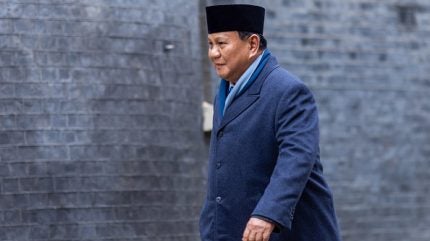
Indonesia and Qatar have launched a $4bn investment fund. The announcement was made during Indonesian President Prabowo Subianto’s state visit to Doha last week, reflecting a growing interest from the Middle East in the ASEAN region.
The fund, to which each party has contributed $2bn, is jointly managed by Danantara Indonesia, a sovereign wealth fund (SWF) launched this February, and the Qatar Investment Authority.
Danantara was founded with the purpose of revamping Indonesia’s state-owned ventures and attracting foreign direct investment. It manages Indonesia’s 47 state-owned enterprises and holds $18bn of assets (although the government wants this figure to eventually grow to $900bn). The fund is expected to contribute to sectors critical to Indonesia’s development plan, such as mineral processing, renewable energy, food security, healthcare and digital infrastructure.
However, it has faced some early scepticism over governance and political risks. Danantara reports directly to President Prabowo, raising concerns about political interventions.
The collaboration reflects a growing trend of SWFs from the Gulf showing interest in Asia, fuelled by economic and geopolitical factors.
On one hand, Middle Eastern governments are looking to new markets as they continue to diversify away from their historically oil-based economies. Traditional Western partners have been strengthening foreign investment screenings. Last year, the UK blocked a Saudi-backed organisation from acquiring The Telegraph, as critics warned it would lead to foreign intervention a national newspaper. The European Union has also increased scrutiny towards outside investments.

US Tariffs are shifting - will you react or anticipate?
Don’t let policy changes catch you off guard. Stay proactive with real-time data and expert analysis.
By GlobalDataWhile Gulf investments in Asia are still relatively small, they have grown in recent years. Saudi Arabia’s Public Investment Fund invested $6.6bn into Asian economies between 2022 and 2024, which was double the amount they invested in the region three years prior, according to Global SWF.
“It’s not an easy proposition that they can simply go out and buy a Western asset,” Vasuki Shastry, a Dubai-based senior advisor at geopolitical risk firm Gatehouse Advisory Partners, told Fortune. “The Gulf countries are uncomfortable with the level of scrutiny that comes with those kinds of investments.”
The geopolitical and economic uncertainty coming from the US may accelerate this shift, as trade relationships that countries once counted on are on shakier ground than ever.
Investors may also want to tap into the region’s tech potential. Southeast Asia has attracted major foreign investment propositions from big tech companies like Microsoft and Meta. The United Arab Emirates also recently pledged $10bn for a renewable energy joint venture with Danantara.
Pandu Sjahrir, chief investment officer of Danantara, told Fortune Emirati investors have already shown a lot of interest in the fund.
“They see Indonesia has great wealth in resources, cheap energy, an abundant population, especially from the consumer side,” Sjahrir is reported as saying. “They’ve made money the last eight to 10 years with Indonesia. They want to do more.”



